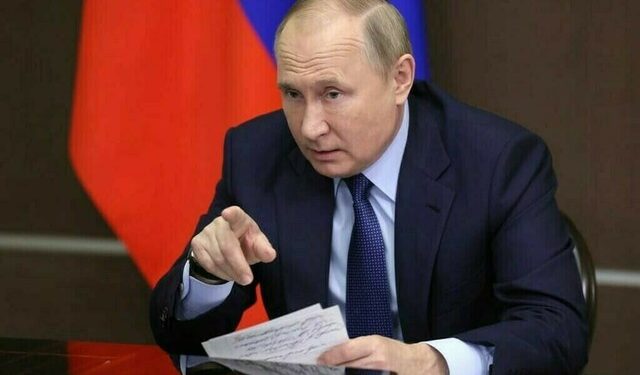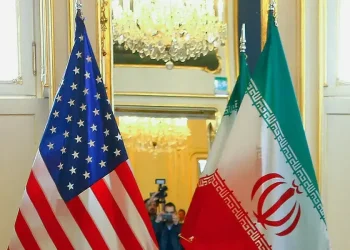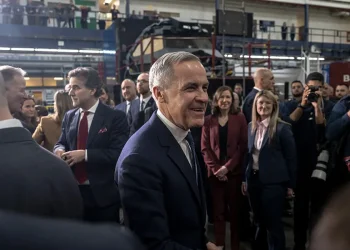MOSCOW: President Vladimir Putin said on Wednesday that Russia would develop artificial intelligence with BRICS partners and other countries, in a bid to challenge the dominance of the United States in one of the most promising and crucial technologies of the 21st century.
Speaking at Russia’s flagship AI conference, Putin said the new AI Alliance Network would include national associations and development institutions in the field of AI from BRICS countries and other interested states.
“Russia must participate on equal terms in the global race to create strong artificial intelligence. It is precisely the advanced solutions that Russian scientists are currently working on,” Putin told an AI conference in Moscow.
“We invite scientists from all over the world to join in the collaboration,” he added.
Western sanctions intended to restrict Russia’s access to the technologies it needs to sustain its war against Ukraine have resulted in the world’s major producers of microchips halting exports to Russia, sorely limiting its AI ambitions.
Russia’s dominant lender Sberbank is spearheading AI development in Russia, but Sberbank CEO German Gref acknowledged in 2023 that graphics processing units (GPUs), the microchips that underpin AI development, were the trickiest hardware for Russia to replace.
On Wednesday, the bank said national AI associations from BRICS members Brazil, China, India and South Africa, but also from Serbia, Indonesia and other non-BRICS countries, had joined the AI Alliance Network.
It said the network would facilitate joint research into technology and AI regulation, and provide opportunities for AI products to be sold in member countries’ markets.
The United States and China are the world’s top AI powers, and US President-elect Donald Trump has named a “White House AI and Crypto Czar” to help ensure the United States remains the richest and most technologically advanced power in the world.
But Putin’s move to ally with China could change the dynamics of the AI race.
Russia is one of 10 countries, including the US, China, Britain and Israel, that are developing their own generative AI models. The Yakov and Partners consultancy, run by former McKinsey employees in Moscow, says this gives it the potential to become a much more significant player.










 American Dollar Exchange Rate
American Dollar Exchange Rate